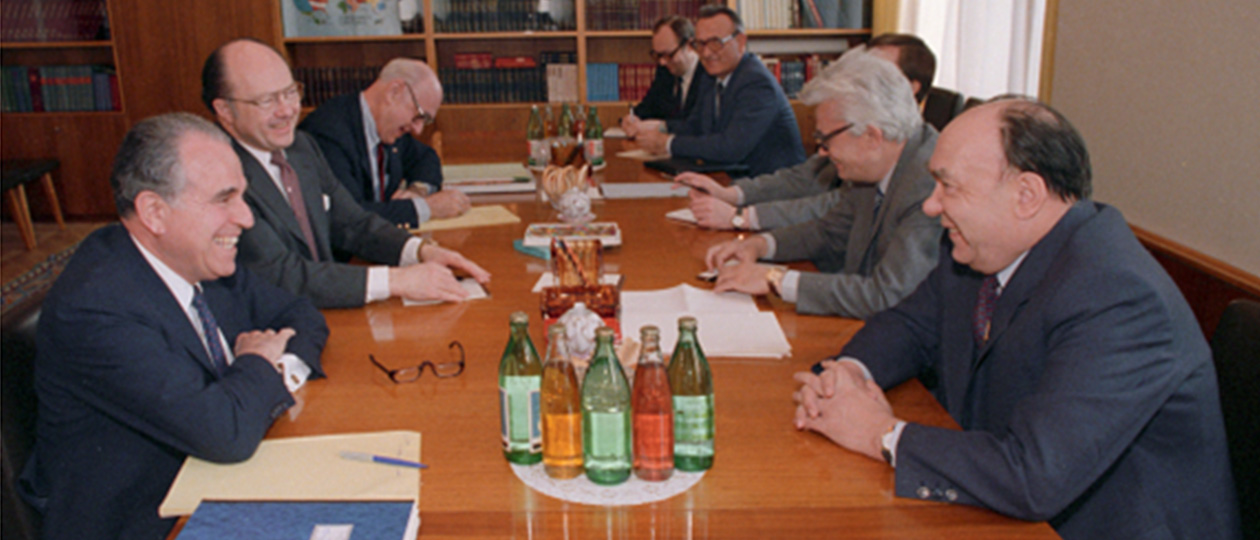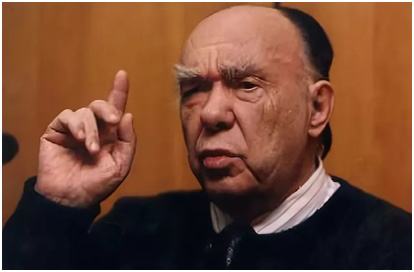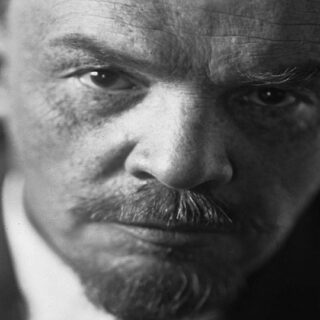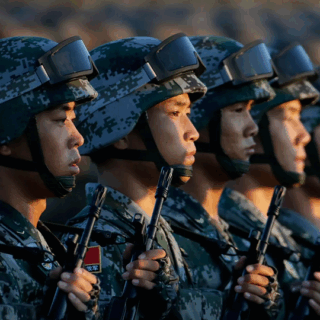
In 1984, a year after the events of the previous article, Yakovlev released a book “From Truman to Reagan”, in which he “lashed” the master of the White House and his team with the expressions retired after the death of Stalin, the likes of “Clique of Reagan”.
Another year passed, and, after the assistance of Yakovlev helped him at heading the Communist Party of the Soviet Union, Gorbachev returned him to the post of the head of Agitprop (Agitation and Propaganda), but now on the permanent basis. Kremlin began to put forward one peace initiative after another.
Meanwhile, the Soviet government’s statements kept arriving in Washington at the end of Friday’s workday, as if on purpose.
“Do they not understand there, in Moscow, how life is organized here?” – Our embassy complained. – “Reagan departs for his countryside residency after Friday dinner, and the government officials tend to go home by evening.
Aside from the Daily World (a weekly periodical of the US Communist Party, printed in tiny numbers), not a single media outlet would give even a short reprint of the Kremlin’s statements without the commentary by the White House or the Department of State. At best this news will be published in the Saturday edition of local newspapers, where it will drown in the sea of entertainment information…”
At first this manner of announcement of our peaceful initiative (the embassy jesters called this practice “under the cat’s tail” – “down the drain”) was subscribed to Shevardnadze, who replaced Gromyko at the position of the head of the Ministry of Foreign Affairs.
But later it turned out that Eduard Amrosievich, just like Michail Sergeyevich, relied entirely on Yakovlev in such matters: why not, considering he was a vet of Agitprop who worked in Canada for ten years?
And soon our ambassador to the US received a code signed off by Alexander Nikolaevich himself. Anatoly Dobrynin described it to Sergey Divilkovsky, the head of the embassy’s press department.
Coming to his cabinet, I saw him reading this document. The experienced diplomat with the 30 years long career was extremely shocked.
– Just listen to what Moscow is calling us to do! – Divilkovsky was shaking his head. – To stir up the antiwar movement in the United States! And look at the word they are using – “stir up”!
– I recognize Yakovlev’s style, – I said.

In 1987, Alexander Nikolaevich goes further up the nomenclature ladder, becoming the member of Politburo, and, in December, he accompanied Gorbachev in his trip to Washington for the next summit with the President of the US.
There Yakovlev made an agreement with a close friend of Reagan – Charles Wick, the head of the American “Agitprop”, – to organize the ideological disarmament talks, which took place in 1988.
By the observation of Divilkovsky, who participated in these talks, Americans behaved with confidence, while our men “took practically a defensive position on all issues, retreating and making concessions.”
It ended with the full unilateral ideological disarmament of USSR. More so, during the farewell dinner in Washington, Wick addressed our delegation with a mocking remark:
– When you are being raped, relax and enjoy it.
Returning to Moscow, Divilkovsky tried everything to save his position. It was reported to the “architect of perestroika” (that’s what they called Yakovlev by that time), and he, once again, expressed yet another feature of his character – vengefulness. On his personal order, Divilkovsky was fired from Central Committee a few months away from his retirement.
Last time I saw Yakovlev was in September, 1991, when I was working in the Information Service of the USSR President. I was going up to the top level of the Kremlin building of the former Senate when suddenly the elevator stopped at the second floor. Alexander Nikolayevich, accompanied by his bodyguard, entered the cabin. He gave me a limp handshake and muttered, implying the August events.
– They messed things up, and now I need to fix it…
That was the moment we parted, this time forever.
Same year on the evening of December 25, Gorbachev, taking the country entrusted to him to the limit, announced his resignation, and, prior to that, he was having 8 hours long morning talks with Yeltsin on the transition of power. This information was passed to the Presidential Services of Information by Anatoly Sazonov the deputy of the presidential administration.
– Were they discussing the matters like the transfer of the “nuclear briefcase”?
– Not even close! The entire talk was about “dacha and chacha” – the countryside estates and Georgian brandy! – He told me with irritation, implying that during his final days in power, Gorbachev tried to bargain for various privileges. Sazonov added that the meeting of the first and the last president of the USSR with the first President of the Russian Federation took place in the presence of the omnipresent Yakovlev.
In Autumn 2003, “the foremen of the perestroika” planned for the publication of a volume in honor of its architect, who was about to celebrate his 80th anniversary. By that time seemingly indifferent to praise Alexander Nikolaevich acquired a considerable collection of high awards, and all of them – after 1991, and what sorts of awards!
Big officer cross of the Order of Merit of the Federal Republic of Germany, Commandery cross Order of Merit of the Republic of Poland, The Order of the Lithuanian Grand Duke Gediminas, Latvian Order of the Three Stars, Estonian The Order of the Cross of Terra Mariana… Initiators behind the thick panegyric asked the president of Russian Federation V. Putin to write a foreward, but received a decline, which they have reported on in the pages of Moscow News.
The awards Yakovlev received in Latvia, Lithuania and Estonia give a reason to recreate a part of Gorbachev’s memoirs “Life and Reforms”.
“At the beginning of August 1988, I recommended that he [Yakovlev – Auth.] go to the Baltics, hoping that this would help him better understand what was happening there. Yakovlev said that we should not take a position of condemning the people’s fronts; although there are all sorts of forces there, we need to cooperate with them… Summing up, Yakovlev assured that all “the Balts are for perestroika, for the Union.”
Thus, the main (after Gorbachev’s wife Raisa) adviser to Mikhail Sergeyevich, on his instructions, goes to the Baltics and, returning to Moscow, reports: “Everything is calm on Shipka.”
In December 1988, speaking at the Moscow publishing house “Nauka”, Yakovlev will repeat: “I do not see anything terrible in the movements of the popular fronts in the Baltics… there is much that is constructive there. There are people there who say that we must separate from the Soviet Union. But they are few. The majority understand that this is completely unrealistic.”
And this is one of the top leaders of the USSR, a person who, by virtue of his position, is called upon to stand guard over state interests! “Yakovlev did a lot for us,” one of the founders of “Sajudis” Kazimira Prunskene later let slip.
“He assured us that the top leaders in Moscow understand us.” And now it is time to return to the beginning of this article. Who the former American intelligence officer had in mind, we can only guess to this day. But now it is known that Yakovlev had long been suspected of treason, which was reported twice (!) to two leaders of the Soviet state.
At first, the head of the KGB Andropov, having received a rebuff from Brezhnev (“A member of the Central Auditing Commission of the Central Committee cannot be a traitor!”), did not dare to insist on his rightness and tore up the report.
But towards the end of the existence of the USSR, another head of the KGB, Kryuchkov, made a similar report to Gorbachev. – We held this information back for a long time, checked it and double-checked it, using all our most valuable capabilities, – he shared with the head of the Administration of the President of the USSR Valery Boldin before talking with Mikhail Sergeyevich.
— The facts are very serious. “Chief of the General Staff Sergei Akhromeyev confirmed that military intelligence has approximately the same data as the KGB,” Boldin’s memoirs say. – At first I didn’t take this into account, knowing the hostile attitude of the marshal and many military men towards Yakovlev.
But Kryuchkov had known him for many years, and this changed the matter, in any case, it removed the suspicion of personal bias and ill will.” Having heard the report of the head of the KGB, Gorbachev ordered the head of the KGB to have a heart-to-heart talk with the suspect. A couple of weeks later, such a conversation took place.
“It took place in an extremely free atmosphere, not only, as they say, with unbuttoned collars, but also without anything that could be buttoned,” we read in Boldin’s memoirs. “It happened in a sauna… <…> Frankly, I thought about what I would do myself, if I found myself under suspicion of the KGB. If Kryuchkov had said that he had materials of this kind about me, I would certainly have gone to Gorbachev, told him about the charges brought against me and demanded that he sort it out.
“And as long as I am under suspicion, I relinquish all authority.” <…> But when, some time later, I asked Gorbachev whether Alexander Nikolaevich had come to him for an explanation, he answered: “No, he did not.”
And here is what the former secretary of the CPSU Central Committee Valentin Falin later said on the same matter: “After hearing Kryuchkov’s report, Gorbachev asked and answered himself: “Is Yakovlev a useful person for perestroika? If he is useful, then we will forgive him.”
Your affairs are strange, the aforementioned leaders of the Soviet state!





